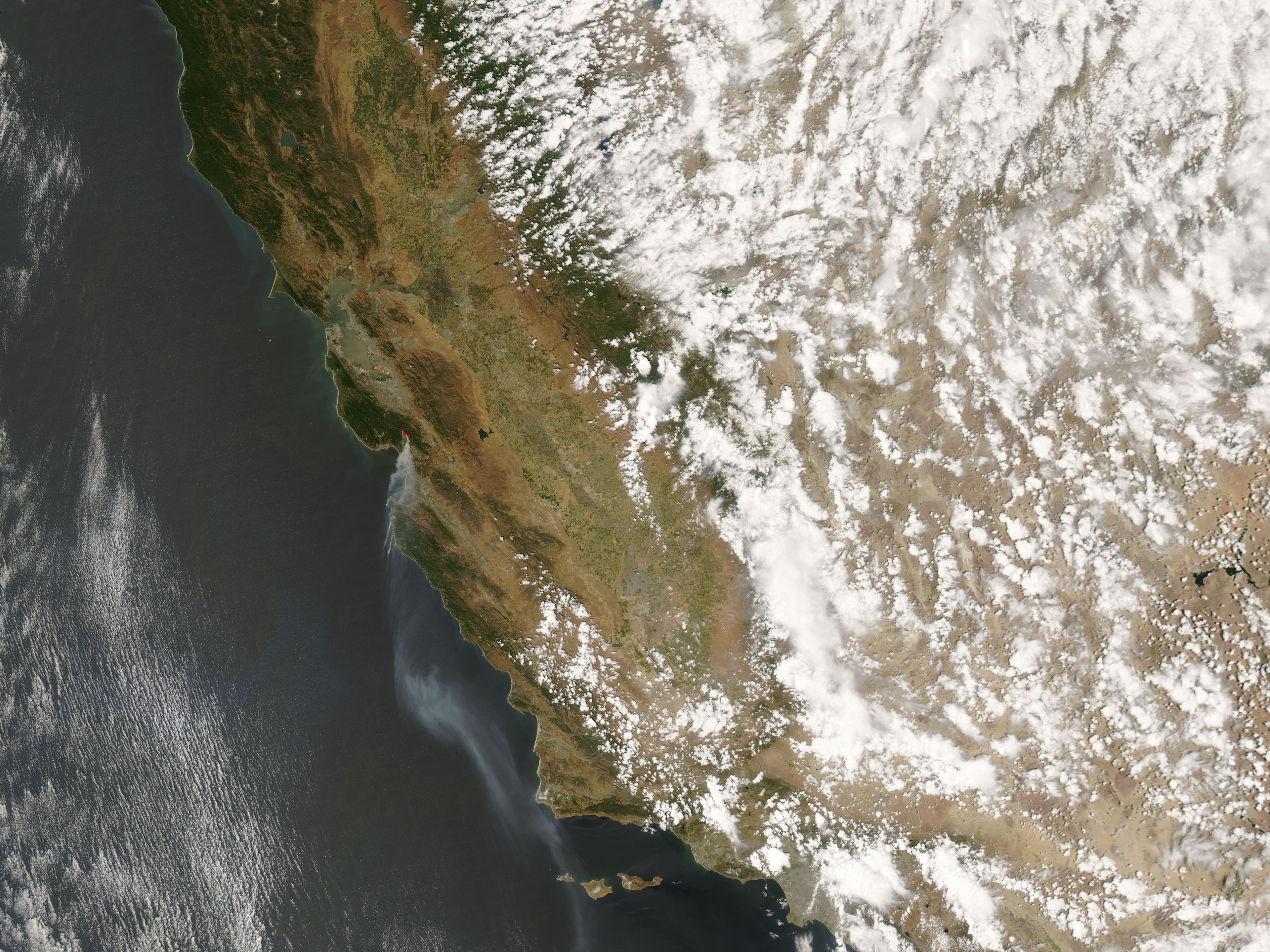“We’re all guilty.â€
Ross Macdonald, The Blue Hammer
 Every fire season in the West I think of Ross Macdonald. In his novel The Underground Man (1971), a wildfire burns an erratic swath through the steep canyons slicing the hillsides behind Santa Teresa, Macdonald’s mythical version of Santa Barbara, threatening to “strike across the city all the way to the sea.†At one time California wildfires erupted in late summer or early fall. Now they happen year-round. The NASA image above, taken May 23, is of the Summit fire east of Santa Cruz.
Every fire season in the West I think of Ross Macdonald. In his novel The Underground Man (1971), a wildfire burns an erratic swath through the steep canyons slicing the hillsides behind Santa Teresa, Macdonald’s mythical version of Santa Barbara, threatening to “strike across the city all the way to the sea.†At one time California wildfires erupted in late summer or early fall. Now they happen year-round. The NASA image above, taken May 23, is of the Summit fire east of Santa Cruz.
Macdonald’s Lew Archer detective novels span 1949-76. The last of them, The Blue Hammer (1976), is more than thirty years old, yet his stories read like yesterday’s news. And Santa Teresa is as much a character as any of Archer’s clients. In Sleeping Beauty (1973) an oil spill from an offshore oil rig threatens a private beach. It’s not just that Macdonald was something of an environmentalist, and held notions about the wholeness of nature, life as a seamless web. It’s that his prose, plain and lucid, let’s you breathe natural air. The physical world of his novels is rendered in precise, economic detail, but it’s a world of shades. Think of his California landscapes as Richard Diebenkorn paintings from which the color has been drained. In The Chill (1961) a murky fog surges through the city, as thick as the novel’s gray-toned plot.
I’m not sure what Macdonald would have made of climate change and other global threats. (He died in 1983.) He was not big on big issues; his focus was on individual responsibility. You see that in his hero and alter ego, Lew Archer. Macdonald is often described as the direct heir of Chandler and Hammett. But it’s more accurate to see Archer as the true heir. Archer reads and admires the hard-boiled crime novels, but with some skepticism about the tough, romantic life depicted in them. He realizes that while the art of private investigation may be morally ambiguous, its actual practice is mundane. Archer is knocked on the head now and then, but for the most part he avoids direct violence. In one revealing instance he is embarrassed when a client catches him aiming an empty target pistol at a rat eating kernels of grain in a bird feeder.
Continue reading Ross Macdonald and the one-to-one ratio